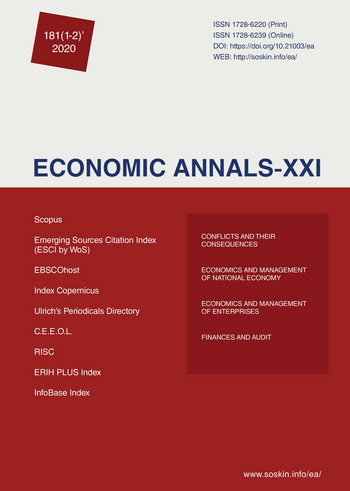The information services sector: defining the extent of public regulation ensuring its development
The information services sector: defining the extent of public regulation ensuring its development
Author(s): Leyli Ali AllakhverdievaSubject(s): Politics / Political Sciences, Economy, ICT Information and Communications Technologies
Published by: Institute of Society Transformation
Keywords: Information Services; Liberalism; Dirigisme; Government Intervention; Public Regulation; Information; Postal Services; E-Services;
Summary/Abstract: The author defines the extent of public regulation (government intervention) in the information services sector, namely, in the information services provision process via post and Internet needed to ensure its development. There have been used the postal services freedom (PSFi) and e-services freedom (ESFi) Sub-indices included in the Index of liberalism (dirigisme) of information services to measure the liberalism (dirigisme) degree of the information services provision process. The methodology of the Index has been prepared according to the philosophy of assessing the degree of government intervention in the economy by Professor N. Muzaffarli. The relationship between the degree of government intervention in the information services sector and development indicators of sector has been analyzed. The study revealed that there is no decrease in the indicators of number of international outbound letter mail services and domestic letter mail services with the increase of the degree of government intervention in the information services provision process via post in European countries. Moreover, in most countries with more dirigiste information services provision process via post, the indicators are higher than in countries with lower degree of government intervention in this process. The fact that the increasing degree of dirigisme of the information services provision process via post in European countries does not have negative impact on the development of the information services sector is also proved by the result that an increase of the PSFi does not decrease the turnover from the provision of domestic letter mail services. Instead, the indicator of most European countries with a higher degree of government intervention in the information services provision process via post is higher than in countries with more liberal postal services. An entirely different picture has emerged in the countries of Commonwealth of Independent States (CIS) which are former Soviet republics: with an increased postal services’ dirigisme degree, the indicators of post offices’ activity for the information services provision are too low. It indicates that in these countries an increased dirigisme degree of postal services may impede the development of information services sector, and to ensure its development, liberalization of the services is vital. The study also allowed determining that creation of favourable competitive conditions in the field of Internet and telephony by governments of European as well as CIS countries could increase the share of books, magazines, and e-learning materials buyers via Internet in the total number of citizens.
Journal: Економічний часопис - ХХІ
- Issue Year: 181/2020
- Issue No: 01+02
- Page Range: 57-67
- Page Count: 11
- Language: English

